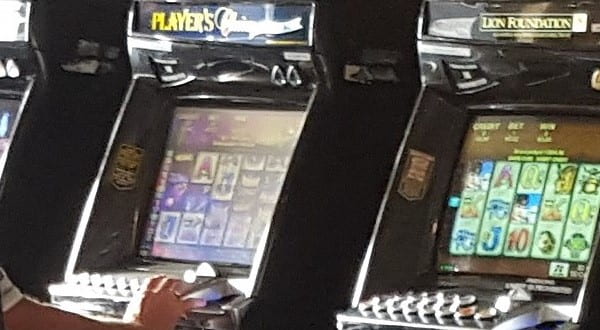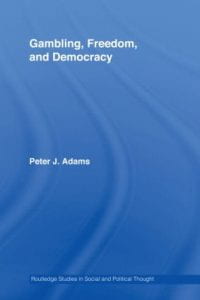The licensing of more and new forms of gambling has been heading in only one direction, that is, more, more and still more. But who is really asking for “more”?
In New Zealand, for example, in 2012 the Prime Minister, John Key, committed to a deal with Auckland’s SkyCity Casino to bankroll a convention centre in exchange for more gambling machines.
The drivers for this expansion are complex.
Part of it can be put down to the unhealthy alliances between politicians and the barons of addictive consumption industries such as alcohol and gambling. Their relationships often lacking any sort of public visibility and accountability.
In addition to this, for many in government, gambling has been approached, at least in part, as a quick-fix for challenging (and expensive) social and economic development issues.
Way back before the 1990s, New Zealanders enjoyed two main forms of gambling: track betting and a national raffle, “Golden Kiwi”—low-intensity, low-potency forms of betting.
Gambling boomed in the 1990s. In the early 1990s gambling machines arrived, then casinos, then different lottery products. The rapid proliferation catapulted the country into more potent forms of gambling and, accordingly, into losing ten-fold the amounts of money lost in previous decades.
The pattern of growth was ad hoc and reactive: Government amended the law and a new casino opened; other gambling sectors cried foul, so the law was amended for gambling machines to have higher jackpots; more outcry; then further amendments helped Lotteries get Keno; more outcry; more amendments with the racing industry getting offshore internet betting; more complaints, more amendments and another casino was opened, followed by Lotteries getting Powerball, followed by gambling machines permitted in new venues, and so on it went.
Each allowance for one part of the industry triggered claims of unfairness followed by amendments relaxing restrictions for another part of the industry.
This ongoing dance with different gambling sectors claiming their share of allowances is a familiar pattern that drove gambling expansion in Australia, the United States and in Europe.
Of course the NZ Government could see from what was happening overseas that this boom could not continue indefinitely. It risked uncontrolled growth which could damage the gambling industry as a whole; it had to put on the brakes.
The slowdown began in the late 1990s with a moratorium on new casinos, then, in the early 2000s, a comprehensive bill, the future Gambling Act 2003, was prepared with principles that included controlled growth, minimising harm, community benefit and community consultation.
However, despite the Government’s guiding hand with each of these increases, at no point do I recall clear public consultation on whether the broader public wanted these new forms of gambling.
Nor was there any consultation on how much gambling we really needed. Who asked for gambling machines in the first place? Who asked whether 18,000 gambling machines was a desirable number? Who asked whether losing $2 billion per year (mostly by those with low incomes) was the level of gambling we were comfortable with? Who asked whether we really wanted casinos to dominate the center of our major city?
Indeed, both in New Zealand and overseas, there has never been, to my knowledge, a popular movement promoting more gambling. The impetus invariably comes from the industry itself in search of more profits and politicians looking for solutions for other problems.
Government concessions, special arrangements and back-room deals are true to this tradition. Those who govern continue to demonstrate resolute disregard for public views and concerns about the current state of play with gambling.
But what’s worse is that any “minor” allowance for one form of gambling will trigger another outcry from other gambling sectors which lead inevitably to further law changes and further increases in gambling consumption. More casinos? More internet betting? More gambling machines? Again, as citizens we have very little influence over what shapes our gambling environments.
Read more in this book: Gambling, Freedom and Democracy
Also a relevant article: A tale of missed opportunities: Pursuit of a public health approach to gambling in New Zealand
Text by: Peter J. Adams Picture by: Peter J. Adams


Recent Comments